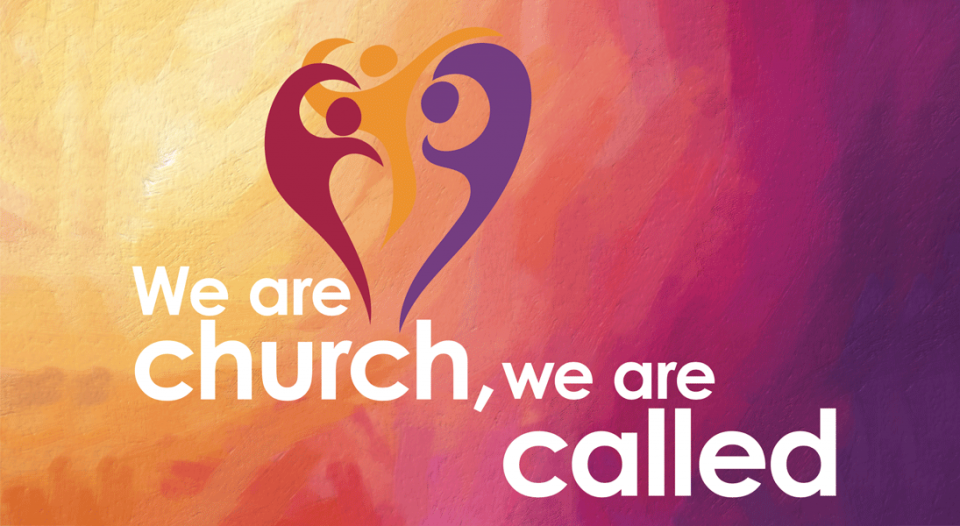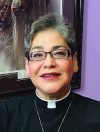Editor’s note: This year the ELCA celebrates 50 years of Lutheran women’s ordination in the United States, 40 years of the ordination of Lutheran women of color and 10 years of Lutheran LGBTQIA+ individuals’ freedom to serve (elca.org/50yearsofordainedwomen). In this series, these leaders share their joys, struggles and gospel hope.
Becoming a pastor was never in my plans. I’ve often joked that I’m a living example of the saying “God doesn’t call the qualified. He qualifies the called.”
I grew up at Iglesia Luterana Gracia, a small Lutheran church in Mexico City, where my father was music director. The congregation follows Lutheran Church–Missouri Synod guidelines, so women’s ordination was an alien concept to me. Maybe that’s why I never imagined myself as a leader in the church.
Then, in 1981, I became a director for Acción Social Ecuménica Latinoamericana, where I met many strong women leading human rights movements in Central America. I was inspired by them and committed to work for social justice and to grow as a community organizer.
I also met my future husband, who was studying at the Comunidad Teológica de Mexico to become a Lutheran pastor. His home country, El Salvador, was enduring a civil war and the government was targeting the Salvadoran Lutheran Church (SLC).
In December 1984, he went back to El Salvador to support the church. I joined him in April 1985, and we married that year. We worked as lay leaders, serving a refugee camp, Fe y Esperanza (Faith and Hope). There we taught Sunday school and prepared kids for first communion and confirmation. I loved this work, but it still wasn’t my plan to become a pastor.
We returned to Mexico in December 1986 so my husband could finish his theological studies. I worked as a medical assistant in the Mexican Institute of Social Security. Then, in May 1989, Medardo Gómez, SLC bishop, called my husband to serve a congregation in San Miguel, El Salvador. I was supposed to join him at the year’s end, but the country’s political situation had gotten worse.
I’m a living example of the saying “God doesn’t call the qualified. He qualifies the called.”
That November, the guerrilla army launched its last offensive against the government while the persecution of churches and other organizations continued. It wasn’t until March 1990, two years before the war ended, that I was able to join my husband in ministry.
The SLC then appointed me as the regional coordinator for the pastoral care of women in the eastern zone. In that role, I worked alongside a female pastor to lead Bible studies and coordinate a craft co-op. After that experience, I wanted to grow my biblical knowledge to better serve others.
I later had the opportunity to study theology while my husband procured his Master of Divinity from the Lutheran School of Theology at Chicago. When we returned to El Salvador, I took on a new role—Sunday school teacher at Resurrection Lutheran Church in San Salvador, then Sunday school superintendent.
One Good Friday at Resurrection, I preached alongside some lay leaders about Jesus’ last seven words. After the service, Gómez approached me and asked if I’d consider becoming a pastor. I told him that wasn’t in my plans. He insisted I reconsider.
With his and my husband’s support, I applied to seminaries and was accepted at Wartburg Theological Seminary in Dubuque, Iowa. This wasn’t my first choice—I’d hoped to attend a seminary where I could take classes in my native language of Spanish. Yet I committed to the work and graduated in May 2001.
Breaking down barriers
On Sept. 11, 2001, I was ordained at All Peoples Church in Milwaukee. It was a grave day that made me ponder why God would take me out of a conflicted country to serve in a new nation experiencing fresh pain.
In my first call, I served as an associate pastor for the Latinx community within All Peoples. I enjoyed preaching and teaching in Spanish and inspiring others in faith. Unfortunately, so far that’s the only time in my pastoral career that I’ve ministered among Latinx people.
My next call was as interim pastor of Lutheran Church of the Great Spirit, a Native American congregation in Milwaukee. Even though I identify as Latina, I also have Indigenous ancestry. My father had an Aztec family and was fluent in the Nahuatl language, which I constantly regret not having learned.
My ordination on Sept. 11, 2001, made me ponder why God would take me out of a conflicted country to serve in a new nation experiencing fresh pain.
Nevertheless, I was grateful for this connection point that aided me in the four years I served at Great Spirit. That was the first of many opportunities that I had to serve English-speaking congregations.
At the beginning of my pastoral journey, I felt some resentment for missed opportunities to serve the Latinx community. I witnessed my synod call non-Lutheran pastors to fill pastoral leadership needs in some Latinx churches while I continued serving congregations where my native tongue wasn’t needed.
After some personal time for healing, I realized why God led me to study at Wartburg: he was preparing me to serve at ELCA congregations where English was the primary language.
My biggest joy has been that I’ve been able to break down language, race and gender barriers in my ministry. I’ve been privileged to serve Latinx, Native American, African American and Anglo brothers and sisters. Even though it hasn’t been easy, I am certain that I am where God wants me to be.
I wonder where God’s call will lead me next.





